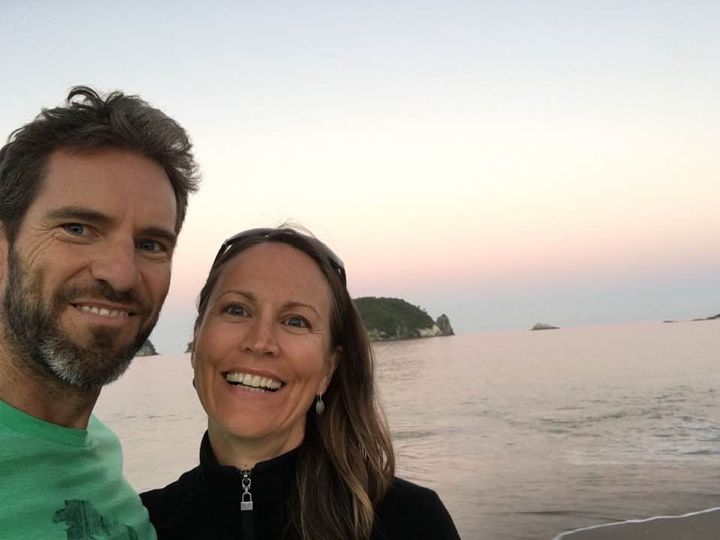Conflict to Connection: Proven Techniques for Healthier Communication
Education, July 19, 2024
Uncover the keys to stronger connections and emotional resilience in your relationships. Having positive relationships is a mainstay to wellbeing and ultimately performance.
Building and maintaining a healthy relationship can be challenging, especially when emotions run high and misunderstandings arise. I have written previous articles on how positive relationships are the bedrock for wellbeing. This article explores essential strategies for improving communication, fostering mutual respect, and deepening your connection with your partner. By focusing on self-awareness, personal responsibility, and emotional intelligence, you can navigate conflicts more effectively and create a more supportive and fulfilling partnership. Whether you're struggling with blame, disappointment, or self-protective behaviors, these insights will help guide you towards a more productive, harmonious and resilient relationship.
- Use I-Statements Instead of You-Statements: Practice speaking from your own perspective using I-statements to express your feelings, such as "I feel hurt" or "I feel angry." This approach emphasises taking responsibility for your own experience rather than blaming others. In contrast, you-statements, like "You made me feel this way" or "You're selfish and lazy," place the blame entirely on the other person. Remember, while your partner may trigger certain emotions, the underlying cause is often a pre-existing belief/trauma or sensitivity within yourself.
- Be Curious About Your Role in Stagnation and Dissatisfaction: Pay close attention to how your communication style with your partner might hinder resolution and escalate issues. For example, not listening, criticising, making assumptions without verification, deviating from important topics, trying to prove you're right, engaging in counter-arguments, bringing up past grievances, using put-downs, and being dismissive or sarcastic can all contribute to ongoing problems in your relationship. Remember that all relationship issues are co-created to some extent, meaning you always play a role in any conflict. Try to make a U-turn and reflect on your own contributions. Get curious about your behavior, own it, and communicate your insights with your partner. All relationships have arguments, the successful ones look for resolutions rather than winning.
- Notice How Your Self-Protection Strategies Affect the Relationship: Consider whether you engage in behaviors that, while intended to protect yourself, ultimately harm your relationship. Examples include blaming your partner to avoid your own shame, vulnerability, or responsibility; counter-arguing to justify your position; trying to be right and making the other wrong; criticising, mind reading, accusing, name-calling; withdrawing affection and communication; or becoming physically aggressive or verbally abusive. While setting boundaries and protecting yourself is important, reflect on whether you do so in ways that undermine resolution and respectful communication. Be curious about what this pattern of self-protection does for you and what feelings it helps you avoid. Often, these defensive strategies mask deeper emotions such as fear and vulnerability. Explore these underlying fears and consider the possibility of communicating them more directly, authentically, and clearly. For example, fears of being controlled, abandoned, rejected, judged, or experiencing loss.
- Avoid Blaming: Many couples fall into the trap of blaming each other for their own pain, casting their partner as the villain. While your partner may influence your experience, they are not responsible for your feelings or happiness—you are. You are accountable for how you handle, relate to, and communicate your feelings and thoughts. Blaming does not foster deeper understanding and connection. Instead, try to take responsibility for your experience. This involves reflecting on your feelings without judgment or rejection. Nothing will change until you embrace responsibility and recognise your own ability to soothe and understand your emotions and choices. This means taking radical responsibility for healing your own wounds rather than expecting your partner to fix them. Ultimately, you are the only one who can consistently support these parts of yourself. No partner can always be there for you in the way you might hope.
- Learn to Tolerate Disappointment: Often, when couples experience disappointment, their first reaction is to place blame. However, true freedom lies in learning to tolerate disappointment and accepting each other's imperfections while maintaining clarity about your core values and how you expect to be treated. This does not mean tolerating physical, emotional, or other forms of abuse. It means recognising that managing disappointments is an inherent part of being in a relationship. Understand that your partner will never be perfect enough to meet all your needs at all times. The challenge is to sit with the disappointment when they fall short, rather than attempting to change, control, or blame them.
- Be Mindful of Your Inner Critic: Often, our need to defend ourselves stems from underlying feelings of shame. When your partner judges you, it triggers a reaction because it activates your own inner critic. By identifying and understanding your inner critic and its impact, you can better manage your partner's criticisms without reacting defensively. It is often your inner critic that fuels your shame and defensive behaviors. Reflect on whether the qualities and behaviors you dislike in your partner mirror what you criticise in yourself. Also, consider if you are projecting your inner critic onto them, assuming they will judge you as harshly as you judge yourself, and then reacting defensively to this perceived threat.
In conclusion, fostering a healthy and fulfilling relationship requires self-awareness and personal responsibility. By using I-statements to express your feelings, recognising and altering self-protective behaviors that hinder communication, avoiding blame, tolerating disappointment, and being mindful of your inner critic, you can create a more understanding and supportive dynamic with your partner. Embrace the journey of self-reflection and growth, and remember that true connection is built on mutual respect and the willingness to address your own vulnerabilities.
For Physiotherapy, Coaching, my book 'Holistic Human', Training Plans, YouTube, FREE recipes,
Connect below
https://linktr.ee/everfitcoach

Coral and I at Hahei beach
.jpg?version=8)